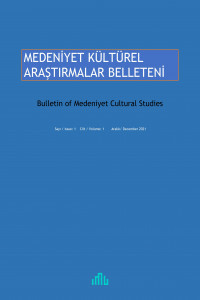
Medeniyet Kültürel Araştırmalar Belleteni
Yazarlar: ["Betul OZBAY"]
Konular:-
DOI:10.60051/medbel.1314812
Anahtar Kelimeler:Türkçe,Gürcüce,Bulgarca,Arapça,Dil ilişkileri
Özet: From the end of the 18th and the beginning of the 19th century, the classical monarchy systems of the old era gradually ended, and national states were established. The administrative order of the states of today’s world is mostly in the form of nation-states governed by representative democracy. However, especially since the second half of the 20th century, international partnerships and collaborative studies in different channels such as science, art, education, culture and trade have begun to be carried out with transnational agreements that have become increasingly important. Especially with education programs at different grades, individuals from a younger age can get to know various cultures by living in different societies. In this way, the opportunity to receive education at universities in other countries creates an important awareness for the individuals, the hosting institutions, and future generations. The increase in such cultural exchanges will contribute to the formation of more tolerant people and societies that understand each other more. In this context, one of the issues worth investigating is what characteristics were inherited by later generations from old monarchies as societies transformed. This question has been the source of motivation for our KA171 project proposal. Certainly, the most important legacy we inherit from our ancestors is the language we speak. We learn the language of the society we were born in from our parents and then pass it on to new generations. Although it is almost impossible to draw the boundaries of this heritage it is possible to identify some areas that it has particularly affected.